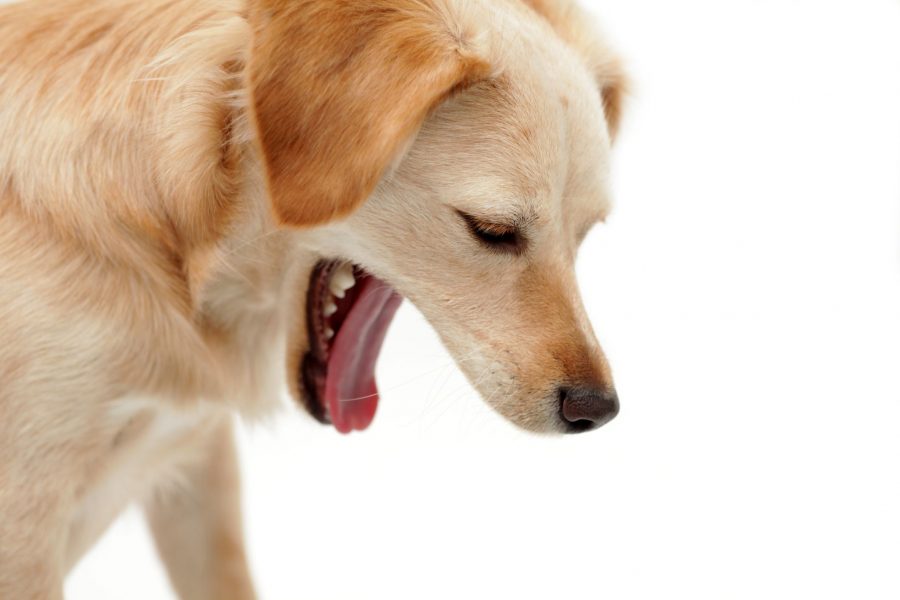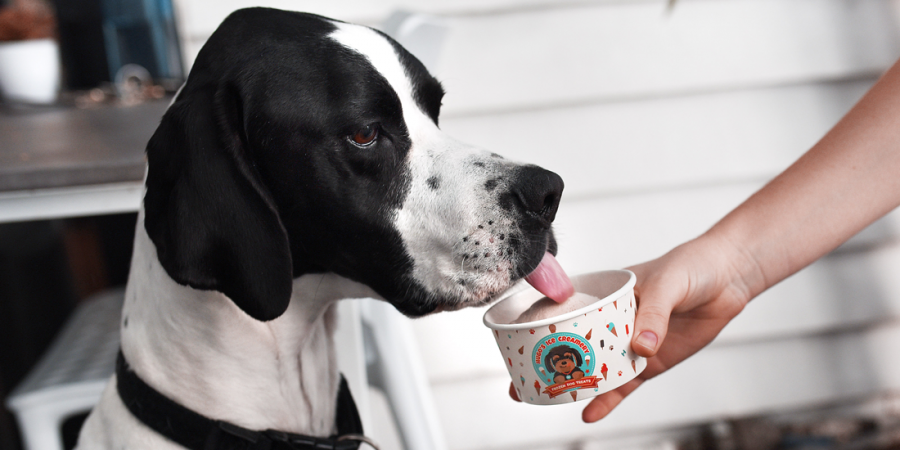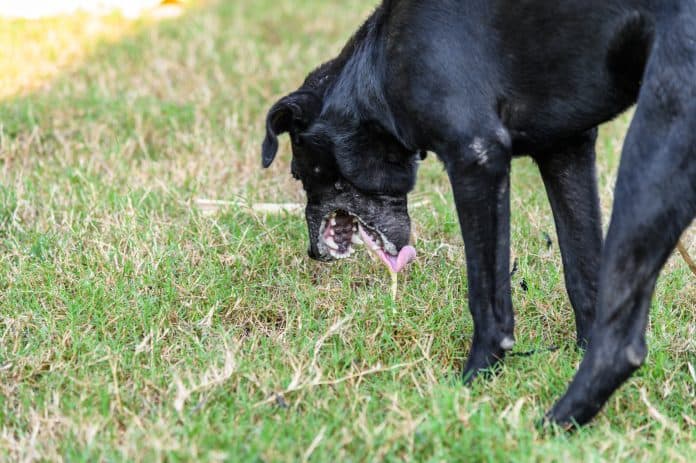If you are like any other dog owner, then by seeing your dog vomit in front of you will raise high concerns for you.
You would want to know the causes of vomiting in dogs and to solve the problem, the remedy, or the treatment for vomiting in dogs.
There is a difficulty though, in finding out the exact causes and treatment because vomiting is a symptom of many diseases that dogs can suffer. Frighteningly, these diseases range from mild to severe.
If to find out the truth, you keep on digging various articles on google, then it becomes pointless as there will be no definite answer to this.
Thus, we have tried to make things easy for you in order to better gauge your dog’s condition.
Table of Contents
The Difference Between Regurgitation and Vomiting in Dogs

We do need to know the causes of vomiting in dogs. However, regurgitation is a phenomenon observed in dogs that is quite similar to vomiting in dogs. Thus, firstly it needs to be differentiated.
During the process of vomiting, the dogs are ejaculating their tummy’s and their small intestine’s contents under pressure. This takes the debris, fluid, and food outside his body.
Before this occurrence, dogs generally are seen with bouts of nausea. This event happens due to constriction of stomach, retching, and drooling. This incident is similar to humans.
Regurgitation, on the other hand, is very different than vomiting. Without any pressure, the contents of the tummy are released by an internal movement that helps your pooch throw out unwanted fluids and food.
The signs exhibited during regurgitation are different as well. These signs are coughing and uneasiness in breathing. The contents of the vomit or regurgitation tell the difference between both the concepts.
Actually, during regurgitation, the substances you see thrown up by your pooch are undigested that keep intact the cylindrical form of the esophagus.
Is it Normal to See Vomiting in Dogs?

Vomiting is common in dogs. Even those who are fine health-wise may vomit and go on to live a good rest of the day as if it was just a sneeze.
In this case, your dog could have just eaten some grass, gulped an undesirable object, or eaten rapidly. In this instance of vomiting, you have hardly anything to worry about.
So, you may validly ask, “when is vomiting in dogs a serious concern?” Your dog will not be affected badly if he vomits only once and that too, without any signs of diseases.
The following signs should indicate to you that you need to worry about your dog:
- Seizures
- Possible external object swallowing
- Diarrhea having blood
- No output material in vomit
- When a dog is vomiting blood
- Excessive single time vomiting
- Chronic vomiting
- Frequent vomiting
Still, as you are not an expert in dog health, it is best to contact your vet for further screening.
The Causes of Severe Vomiting in Dogs

Also, know as severe vomiting, acute vomiting is the occurrence of abrupt or grave episodes of vomiting and is a very important symptom of some complications, disorders, and diseases.
The causes are listed below:
- Intestinal parasites
- Reaction to medication
- Failure of kidney
- Bloating
- Ingestion of irritation causing items such as chocolate and grass
- A change in diet
- Viral infection
- Infection of bacteria
- Ingestion of poisons or toxins
- Liver failure
- Heatstroke
- Pancreatitis
It is best to take the advice of the veterinarians who will find a way to spot the exact cause. As an example, after being outdoors in scorching heat or in a hot car, if your dog vomits, then heatstroke is the culprit.
If you see your garbage bin strewn and disheveled, then the cause is your dog eating something toxic from it.
It is because you are close with your canine friend that you can experientially find out what your dog is going through. The culprit to your dog’s condition can be a new diet, poisonous substances, human medicines, or something else.
If you observe your dog vomiting and diarrhea is seen as well, then it would be wisest to call your vet immediately.
What is Chronic Vomiting in Dogs?

The long-lasting vomiting or often-occurring vomiting is a major cause of worry when it comes with the following symptoms:
- Weakness
- Depression
- Dehydration
- Weight loss
- Blood
- Poor appetite
- Fever
- Stomach pain
The conditions that cause chronic vomiting in dogs include the following:
- Cancer
- Pancreatitis
- Colitis
- Systematic illness
- Obstruction in the intestine
- Constipation
- Disease of liver
- Uterine infection
- Parvovirus
- Liver and kidney failure
- Inflammation of the intestine
Do not get afraid because of these occurrences, the majority of them can be dealt with effectively. The conditions caused by frequent or chronic vomiting in dogs requires the consultation of a vet.
Diagnosing and Treating Vomiting in Dogs

The treatment of dog vomiting mainly relies on the foundation that causes vomiting in dogs. It is the work of vets to carry out a set of easy tests including x-rays, analysis of feces, and collecting blood samples. This reveals the exact source of diagnosis.
In certain scenarios, to find issues with internal organs, an ultrasound of the abdomen is suggested.
Some circumstances are tough to diagnose, such as chronic cases of vomiting in dogs. Here, more diagnoses are required in the form of a pancreatic blood test, biopsies for surgeries, and testing for Addison’s disease. All this to recognize the source of the dog’s condition.
When your dog is suffering the swelling of the intestines or stomach, the usual treatments for these conditions include administering anti-nausea medicines and providing a less-flavored diet.
Some rigorous therapies such as injection-using medicines, hospital admission, and administering certain fluids; Some scenarios require giving surgeries to the dog as well. These therapies act as common treatment options for your dog.
It is utmost crucial to heed the directives of your vet and convey openly to your family vet. For your ill pooch, the best way forward would be to get the most suited plan of treatment. This would ensure that your dog is devoid of severe symptoms.
Your dog vomiting after the intake of a poisonous object, treating your dog early could mean to be a life-saver. We have a list of some toxic food for your dog that you should avoid feeding him.
My Dog is Vomiting Yellow: What is That?

For impactfully dealing with any illness, it is critical to reach to the base of the problem. Vomiting in dogs has certain indications such as consistency, frequency, and color. Your observation of the yellow color in your dog’s vomit is indicated by the color.
Yellow color occurs in a dog’s vomit when the dog is vomiting bile. Bile is the result of yellow vomiting in dogs. The fluid known as bile is actually functioning inside a dog’s body as a digestion facilitator.
It is generated inside the liver. During the ongoing nature of the process of digestion, bile reaches the small intestine after passing through the gall bladder.
In the meantime, it also disintegrates food components and dispatches the necessary nutrients to be consumed productively in the body.
When your dog is vomiting white foam, it is not actually bile. Bile is a thicker, foamy, but yellow mucus.
Why is My Dog Vomiting White Foam?

You may see foamy or bubbly sputum coming out of your dog’s mouth. The surplus gas or air in his stomach is the result of such vomiting in dogs. if there is nothing else inside his tummy, that is when he will puke white foam.
Certain gastric juices and salivary fluids compose the white foam in its purest form.
The usual reason for your dog to vomit white-colored foam is the gastrointestinal discomfort. Excessive gas in the stomach of your pooch is also the cause of this.
The vomit-inducing gastrointestinal distress is the result of the following conditions:
- Consumption of spicy, fatty, or sugary people food.
- Infection of the bacteria.
- Stroke due to excess heat.
- Swallowing certain poisonous substances.
- Consuming tummy irritants such as grass.
The best solution to deal with this issue is to contact a veterinarian. But, when you are aware that your pooch has swallowed some grass and he still does not throw that up, you should be sure that a vet visit is not on the cards.
In known mild circumstances, do not give your dog food for the first 12 hours. Feed small amounts after that when your pooch is ready.
Now, let us know your thoughts on this topic.
Have you encountered a severe vomiting bout in your dog? Were you able to solve the dog vomiting issue successfully?
Let us know through the comment section.
Happy Petting to You Guys!












